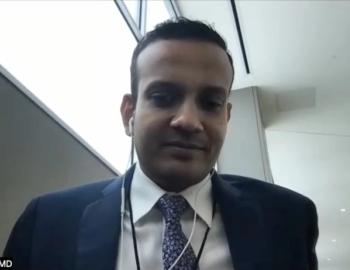
It takes a team of physicians from multidisciplinary backgrounds to best manage patients with contralateral breast cancer, according to a Mayo Clinic Expert.

Your AI-Trained Oncology Knowledge Connection!


It takes a team of physicians from multidisciplinary backgrounds to best manage patients with contralateral breast cancer, according to a Mayo Clinic Expert.

The presence of several risk factors—such as age, race and mutation status—for contralateral breast cancer must be considered when making treatment decisions, according to an expert from the Mayo Clinic.

Recent study findings related to risk factors for developing contralateral breast cancer may better influence treatment decisions between patients and physicians, according to a Mayo Clinic expert.

An expert from the Mayo Clinic discusses findings from a population-based study concerning germline genetic mutations as risk factors of contralateral breast cancer.
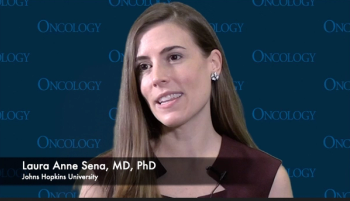
Thus far, findings from 2 trials show that treatment with bipolar androgen therapy is associated with several benefits in patients with castration-resistant prostate cancer, according to an expert from Sidney Kimmel Comprehensive Cancer Center.

An expert from the Mayo Clinic explains why he and his colleagues are researching risk factors for contralateral breast cancer in carriers of moderate-risk genes such as ATM, CHEK2, and PALB2.
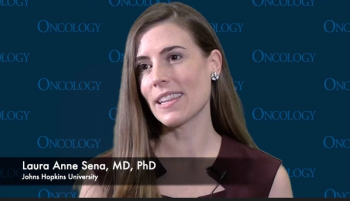
Investigators have observed that treatment with bipolar androgen therapy has suppressed at least one oncogene in patients with castration-resistant prostate cancer who derived a response to therapy.
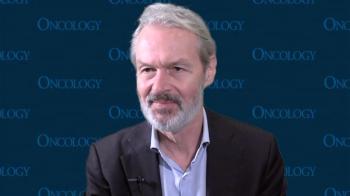
Despite the observed disease-free survival benefit associated with pembrolizumab in high-risk kidney cancer after surgery, the European Association of Urology guidelines maintain a weak recommendation for its use.
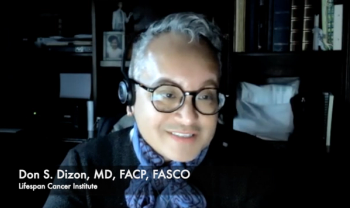
Don Dizon, MD, FACP, FASCO, discusses the need to improve treatment strategies for transgender patients with cancer.

Don Dizon, MD, FACP, FASCO, describes the importance of establishing a gender-affirming environment for patients with cancer.

Don Dizon, MD, spotlights the daunting experiences lesbian, gay, bisexual, and transgender patients with cancer face, tracing that experience from diagnosis throughout treatment and continuing into symptom management.

Currently, it is not known whether cisgender and transgender patients with cancer respond similarly to standard-of-care therapies due to challenges collecting gender identity and sexual orientation data in clinical cancer research.
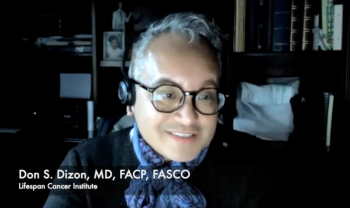
Don Dizon, MD, emphasizes the importance of policies ensuring higher levels of gay and transgender participation in clinical cancer trials.
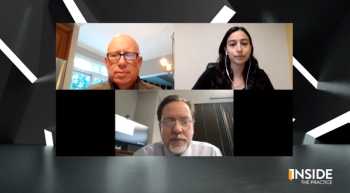
CancerNetwork® spoke with Anthony W. Tolcher, MD, and Alexander I. Spira MD, PhD, about NEXT Oncology partnering with the Phase 1 Trials Program at Virginia Cancer Specialists to give patients another chance at treatment.
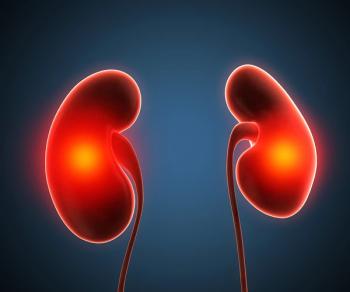
Brian I. Rini, MD, detailed the focus, goals, and key end points of a 3-arm, phase 3 trial comparing MK-1308A or belzutifan plus lenvatinib and pembrolizumab to the control of lenvatinib and pembrolizumab alone to treat patients with advanced clear cell renal cell carcinoma.
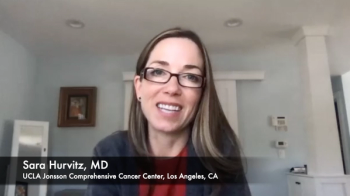
CancerNetwork® sat down with Sara A. Hurvitz, MD, at the 2021 ASCO Annual Meeting to talk about multidisciplinary care with geriatrician oncologists and the use of age-based analyses for diagnosis and following up of metastatic triple-negative breast cancer.

CancerNetwork® sat down with Sylvie Bonvalot, MD, PhD, at the 2021 ASCO Annual Meeting to talk about treatment options for high-grade or grade II sarcoma.

CancerNetwork® sat down with Funda Meric-Bernstam, MD, at the 2021 ASCO Annual Meeting to talk about results of the MyPathway study in HER2-positive advanced solid tumors treated with pertuzumab plus trastuzumab.
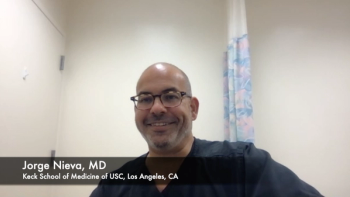
CancerNetwork® sat down with Jorge Nieva, MD, at the 2021 ASCO Annual Meeting to talk about the future of clinical trials for early-stage non–small cell lung cancer.

Judd Moul, MD, discusses the gravity of new data on systemic therapies for men with castration-resistant prostate cancer and how they can be of use during the COVID-19 pandemic.
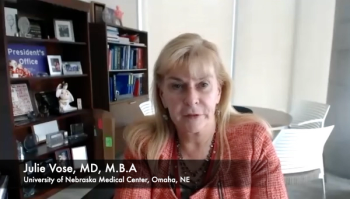
Julie Vose, MD, MBA, a professor of internal medicine in the Division of Oncology and Hematology at the University of Nebraska Medical Center, discusses novel treatment options for patients with hematologic malignancies at the 2021 American Society of Clinical Oncology Annual Meeting.

Julie Vose, MD, MBA, a professor of internal medicine in the Division of Oncology and Hematology at the University of Nebraska Medical Center discussed the benefits of CAR T-cell for patients with follicular lymphoma.

CancerNetwork® sat down with Julie Vose, MD, MBA, at the 2021 American Society of Clinical Oncology Annual Meeting to talk about a clinical trial comparing acalabrutinib versus ibrutinib for patients with chronic lymphocytic leukemia.

Robert A. Figlin, MD, discusses the potential role of adjuvant immunotherapy for patients with bladder cancer.

CancerNetwork® sat down with Jonathan Spicer, MD, PhD, at the 2021 American Society of Clinical Oncology Annual Meeting to talk about how communication across a multidisciplinary team was necessary to the success of neoadjuvant immunotherapy administration in CheckMate 816.
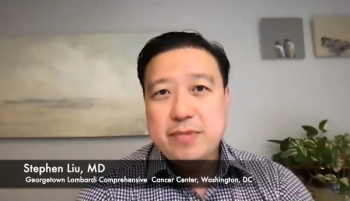
At ASCO 2021, CancerNetwork® spoke with Stephen Liu, MD, about his research on the ARROW trial and how these results might impact the treatment of patients with RET fusion–positive non–small cell lung cancer who are potential candidates for treatment with pralsetinib.
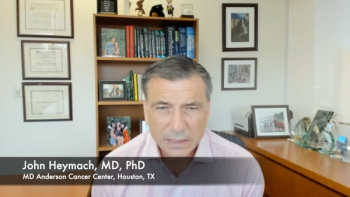
CancerNetwork® sat down with John Heymach, MD, PhD, at the 2021 American Society of Clinical Oncology Annual Meeting to talk adjuvant immunotherapy for recurrence-free survival in resected non–small cell lung cancer.

CancerNetwork® sat down with Edmund Qiao at the 2021 American Society of Clinical Oncology Annual Meeting to talk about prostate-specific antigen screening and prostate cancer prevention in African American men.

At ASCO 2021, Stephen Liu, MD, discussed his excitement for results of the IMpower010 trial of atezolizumab in patients with early-stage resected non–small cell lung cancer

Eric J. Sherman, MD, highlights several drugs that are being used to treat RET-positive thyroid cancer.